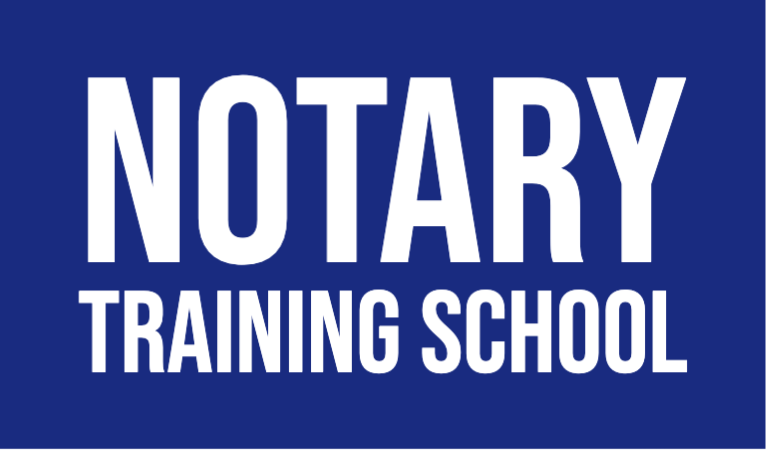Notary Journal Essentials: What to Record and How to Stay Organized

As a notary signing agent, one of your most crucial responsibilities is maintaining an accurate and detailed notary journal. This essential practice not only ensures compliance with legal requirements but also protects you and your clients by providing a clear record of all notarizations. In this article, we will explore the fundamentals of what to record in your notary journal and provide practical tips on staying organized and efficient. By the end of this guide, you’ll have a comprehensive understanding of the importance of meticulous journal-keeping and the best methods to implement it in your daily notarial duties.
Table of Contents
Understanding the Notary Journal

Definition and Purpose
A notary journal is a chronological record of all notarizations performed by a notary signing agent. Its primary purpose is to provide a verifiable trail of notarization activities, which can be crucial in legal disputes or audits. By maintaining a detailed journal, you create a solid defense against claims of improper conduct and ensure transparency in your notarial acts.
Legal Requirements
The specific requirements for maintaining a notary journal vary by state. Some states mandate that notaries keep a journal, while others do not. However, even in states where it is not legally required, maintaining a journal is considered a best practice for accountability and professionalism. It is essential to familiarize yourself with your state’s regulations regarding notary journals to ensure compliance and avoid potential penalties.
Importance of Accuracy and Thoroughness
Accuracy and thoroughness are paramount in maintaining a notary journal. Each entry should be complete and detailed, capturing all necessary information about the notarization. Incomplete or incorrect entries can undermine the integrity of your journal and may lead to legal complications. A well-maintained journal demonstrates your commitment to ethical practices and protects you and your clients from potential disputes.
Essential Entries in a Notary Journal

Mandatory Details
When making entries in your notary journal, certain details are universally required to ensure the record is complete and useful. These essential entries include:
- Date and Time of Notarization: This provides a timestamp for when the notarization took place.
- Type of Notarization: Specify whether it was an acknowledgment, jurat, or another type of notarization.
- Documents Notarized: Record the title or type of document being notarized.
- Signer’s Details: Include the name, address, and signature of the signer.
- Identification Method: Note the type of ID presented and its details (e.g., driver’s license number).
- Fees Charged: Record any fees collected for the notarization.
Explanation of Each Entry
Each of these entries plays a crucial role in maintaining a clear and accurate record of your notarial acts. The date and time establish a chronological order, while the type of notarization indicates the nature of the service provided. Document details and signer’s information create a connection between the notarial act and the individual involved. The identification method ensures the signer’s identity was verified, and the fee entry provides a record of any financial transactions.
Common Mistakes to Avoid
Avoid common mistakes such as incomplete entries, illegible handwriting, or omitting essential information. Ensure that every entry is thorough and easy to read, as this will enhance the credibility of your journal. By being meticulous and attentive to detail, you can prevent errors that could lead to disputes or legal issues.
Best Practices for Notary Journal Entries

Step-by-Step Guide to Making Entries
To ensure your notary journal entries are both accurate and compliant, follow these best practices:
- Make Entries Immediately: Record all details at the time of notarization to avoid forgetting crucial information.
- Ensure Legibility: Write clearly and use ink that won’t fade over time.
- Use Consistent Formats: Stick to a standard format for all entries to make the journal easy to review.
- Include All Required Information: Double-check that every entry contains all mandatory details.
Ensuring Clarity and Legibility
Clear and legible entries are essential for maintaining a professional notary journal. Use ink that does not smudge or fade over time, and write in a consistent, easy-to-read format. This not only helps in keeping the journal organized but also ensures that the information is accessible and understandable in the future.
Handling Corrections and Errors
If you make a mistake, strike through the incorrect information with a single line, initial it, and make the correction. Never use white-out or completely obscure the original entry. This method maintains the integrity of your journal and shows transparency in your record-keeping practices.
Tools and Supplies for Maintaining a Notary Journal

Recommended Notary Journals and Supplies
Choosing the right tools and supplies can significantly enhance the efficiency and security of your notary journal. Consider investing in high-quality notary journals that are specifically designed for notaries, with pre-printed entry fields and durable construction. These journals often include features like tamper-evident pages and clear entry fields, making them ideal for professional use.
Digital vs. Paper Journals
Pros and Cons
Digital Journals:
- Pros: Convenient, easily searchable, and can be backed up electronically.
- Cons: Require secure storage solutions and must comply with state regulations regarding digital record-keeping.
Paper Journals:
- Pros: Provide a tangible record that is less susceptible to digital tampering and are widely accepted in all states.
- Cons: Can be cumbersome to store and are not as easily searchable as digital records.
Security Measures
Whether you choose a digital or paper journal, ensure it is stored securely. For paper journals, use a lockable cabinet to prevent unauthorized access. For digital journals, implement encryption and secure backups to protect sensitive information. Regularly review your security measures to ensure they meet current standards and best practices.
Staying Organized as a Notary Signing Agent

Importance of a Consistent Routine
Maintaining organization is key to managing your responsibilities as a notary signing agent. Establish a routine for updating your journal, such as making entries immediately after each notarization. Consistency helps prevent errors and ensures that all necessary information is recorded accurately.
Managing Multiple Appointments
Use a scheduling tool to keep track of appointments and set reminders for journal updates. This can help you manage multiple appointments efficiently and ensure that you never miss a crucial entry. Tools like digital calendars and notary-specific software can streamline your workflow and improve your time management.
Utilizing Technology
Consider using apps and software designed for notaries to manage your journal and appointments effectively. These tools can automate many aspects of the record-keeping process, making it easier to stay organized and efficient. Look for features such as automatic reminders, secure storage, and easy data retrieval.
Legal and Ethical Considerations
Legal Implications of Improper Record-Keeping
Proper journal maintenance is not just a best practice; it is a legal and ethical obligation. Failing to maintain accurate records can result in serious consequences, including legal action and damage to your professional reputation. Inaccurate or incomplete journals can be seen as a sign of negligence or misconduct.
Case Studies of Notarial Misconduct
Reviewing case studies of notarial misconduct related to journal maintenance can provide valuable insights into the importance of accurate record-keeping. These cases often highlight the consequences of failing to adhere to legal requirements and the potential impact on both the notary and their clients.
Ethical Guidelines for Notary Signing Agents
Adhering to ethical guidelines is essential for maintaining the integrity of your profession. This includes avoiding conflicts of interest, ensuring impartiality, and protecting the confidentiality of your clients. By following these principles, you demonstrate your commitment to ethical conduct and build trust with your clients.
Tips for Long-Term Journal Maintenance
Storing and Archiving Completed Journals
Maintaining a notary journal is a long-term commitment. Store completed journals in a secure, climate-controlled environment to prevent damage. Consider scanning and backing up digital copies to ensure that you have an accessible record in case of physical loss or damage.
Dealing with Lost or Damaged Journals
If your journal is lost or damaged, report it to the appropriate authorities and follow your state’s guidelines for remediation. Keep a backup of your entries in a secure location to minimize the impact of such incidents.
Preparing for Audits and Inspections
Keep your journal organized and up-to-date to facilitate any audits or inspections. Regularly review your entries to ensure they are complete and accurate. Being prepared for audits demonstrates your professionalism and commitment to maintaining high standards.
Conclusion
In conclusion, maintaining a detailed and accurate notary journal is essential for every notary signing agent. By understanding what to record, following best practices, and staying organized, you can ensure your journal serves as a valuable record of your notarial acts. Remember, diligence and attention to detail in journal maintenance not only protect you legally but also enhance your professionalism and trustworthiness. Keeping a meticulous notary journal is a small investment of time and effort that pays significant dividends in legal protection and professional credibility.






Responses